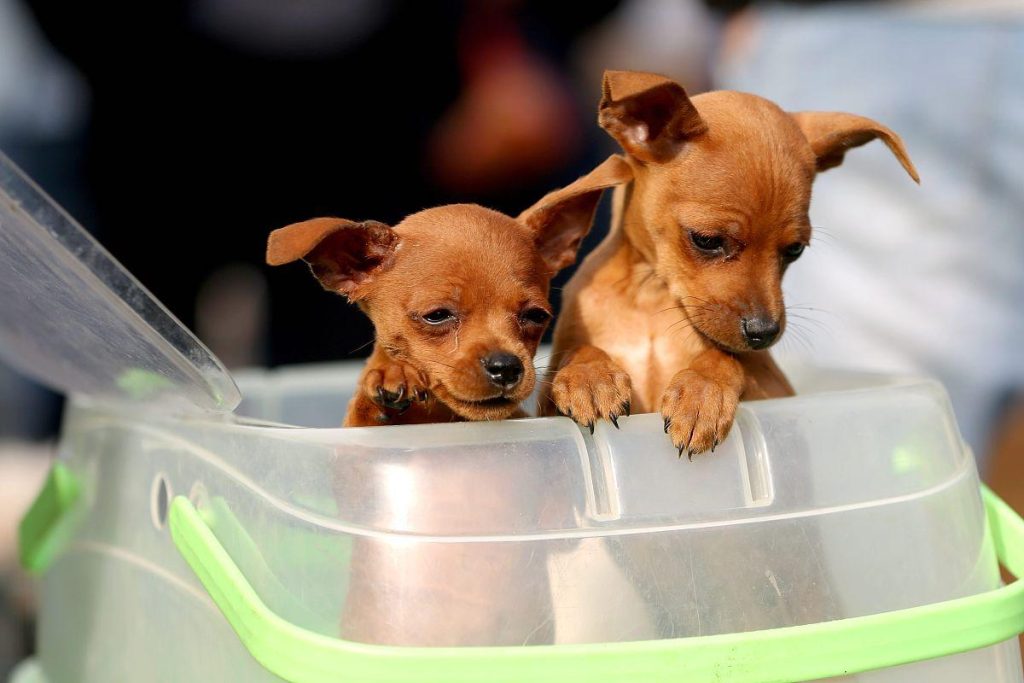Dog food poisoning is a common but potentially dangerous condition that can occur when your pet ingests spoiled food, toxic substances, or contaminated meals. While mild cases can often be managed at home, severe poisoning requires immediate veterinary attention. In this article, will walk you through identifying symptoms, providing first aid, using safe home remedies, and knowing when to seek professional help.
Understanding Dog Food Poisoning
Food poisoning in dogs occurs when they consume harmful bacteria, toxins, or indigestible substances. Unlike humans, dogs have stronger stomach acids, but they can still suffer from severe gastrointestinal distress.
Food poisoning in dogs can occur from various sources, ranging from spoiled food to toxic substances. Understanding these causes is crucial for prevention and prompt treatment. Below is a detailed breakdown of the most common causes of food poisoning in canines.
1. Bacterial Contamination
Salmonella
- Found in raw meat, eggs, and contaminated water
- Symptoms: Diarrhea (sometimes bloody), fever, vomiting
- Risk increases with raw feeding diets
E. coli
- Present in undercooked meat and contaminated vegetables
- Symptoms: Severe diarrhea, lethargy, dehydration
- Particularly dangerous for puppies and senior dogs
Campylobacter
- Common in raw poultry and unpasteurized milk
- Symptoms: Watery diarrhea, cramping, fever
- Can spread to humans (zoonotic risk)
Listeria
- Found in soft cheeses and deli meats
- Symptoms: Neurological issues, fever, muscle stiffness
- More common in immunocompromised dogs
2. Toxic Human Foods
Chocolate
- Contains theobromine (toxic to dogs)
- Dark chocolate and baking chocolate most dangerous
- Symptoms: Vomiting, diarrhea, seizures, death
Xylitol
- Artificial sweetener in gum, candy, peanut butter
- Causes rapid insulin release leading to hypoglycemia
- Can cause liver failure
Grapes/Raisins
- Exact toxin unknown
- Causes kidney failure
- Even small amounts can be dangerous
Onions/Garlic
- Contain thiosulfate (damages red blood cells)
- Leads to hemolytic anemia
- Includes all forms (raw, cooked, powdered)
3. Mold and Mycotoxins
Aflatoxins
- Found in moldy nuts, corn, and grains
- Causes liver damage
- Symptoms may take days to appear
Tremorgenic Mycotoxins
- Present in moldy dairy, bread, and compost
- Causes neurological symptoms
- Rapid onset (30 minutes to 2 hours)
4. Chemical Toxins
Rodenticides
- Found in rat/mouse poisons
- Various types cause different symptoms
- All require immediate veterinary attention
Household Cleaners
- Bleach, detergents, disinfectants
- Cause chemical burns and systemic toxicity
- Store all chemicals securely
5. Parasitic Contamination
Trichinella
- Found in raw/undercooked pork
- Causes muscle pain and fever
- Can infect humans as well
Toxoplasma
- Present in raw meat and cat feces
- Causes neurological symptoms
- Particularly dangerous for pregnant dogs
6. Food Spoilage
Sour Milk/Dairy
- Bacterial overgrowth causes GI upset
- Symptoms: Vomiting, diarrhea, gas
- Some dogs are lactose intolerant
Rancid Fats
- Oxidized fats in old dog food/treats
- Causes “pancreatitis-like” symptoms
- Check expiration dates regularly
7. Foreign Objects
Bones
- Cooked bones can splinter
- Cause intestinal blockages/perforations
- Raw bones safer but still risky
Packaging Materials
- Dogs may eat food wrappers/containers
- Risk of obstruction or toxicity
- Always supervise during feeding
Symptoms of Food Poisoning in Dogs

Symptoms can appear within 30 minutes to 48 hours after ingestion. Watch for:
✔ Vomiting & Diarrhea (May contain blood or mucus)
✔ Excessive drooling or foaming at the mouth
✔ Lethargy or weakness
✔ Loss of appetite
✔ Abdominal pain (Whining, hunched posture)
✔ Tremors, seizures, or disorientation (Severe cases)
✔ Dehydration (Dry gums, sunken eyes, loss of skin elasticity)
🚨 Emergency Signs (Go to the Vet Immediately!)
- Blood in vomit or stool
- Neurological symptoms (Seizures, stumbling, paralysis)
- Known ingestion of a deadly toxin (Rat poison, xylitol, chocolate)
Step-by-Step Home Treatment for Mild Cases
1. Remove Food (Temporary Fasting)
- Adult dogs: Fast for 12–24 hours (water only).
- Puppies/small breeds: Fast no longer than 4–6 hours (risk of hypoglycemia).
⚠️ Never withhold water unless your dog vomits immediately after drinking.
2. Rehydrate with Electrolytes
- Offer small amounts of water (1–2 tsp every 15–30 mins).
- Use unflavored Pedialyte (diluted 50/50 with water) to restore electrolytes.
- Ice cubes can help if your dog vomits after drinking.
3. Introduce a Bland Diet
After fasting, feed:
✔ Boiled chicken + white rice (No seasoning, fats, or oils)
✔ Pumpkin puree (Not pie filling—helps firm stools)
✔ Bone broth (Hydrating and easy to digest)
- Feed small portions (1–2 tbsp every 2–3 hours).
- Gradually reintroduce regular food over 2–3 days.
4. Natural Remedies to Soothe the Stomach
- Ginger tea (Cooled, ¼ tsp per 10 lbs) – Reduces nausea.
- Probiotics (Plain yogurt or dog-specific supplements) – Restores gut bacteria.
- Slippery elm bark (Mixed with water) – Coats and soothes the stomach lining.
5. Monitor for Improvement or Worsening
- Improvement: Gradual return to normal energy/appetite within 24–48 hours.
- Worsening: Continued vomiting, diarrhea, or lethargy → See a vet!
What NOT to Do
❌ Don’t induce vomiting unless instructed by a vet (Some toxins cause more damage coming up).
❌ Avoid human medications (Pepto-Bismol, Imodium, or aspirin can be toxic).
❌ No fatty, spicy, or dairy foods (Worsens irritation).
When to Visit the Vet
- No improvement in 24 hours
- Blood in vomit or stool
- Signs of dehydration (Tacky gums, lethargy)
- Suspected toxin ingestion (Chocolate, xylitol, rat poison)
Preventing Future Cases
✔ Store food properly (Sealed containers, no expired food).
✔ Keep trash secured (Dogs scavenge risky items).
✔ Avoid toxic foods (Educate family/guests).
✔ Transition diets slowly (Over 7–10 days).
Mild food poisoning can often be managed at home with hydration, fasting, and a bland diet, but severe cases need emergency care. Always err on the side of caution—when in doubt, call your vet!
Has your dog had food poisoning? Share your experience below! 🐶💙
Need a first-aid checklist? Ask in the comments!



